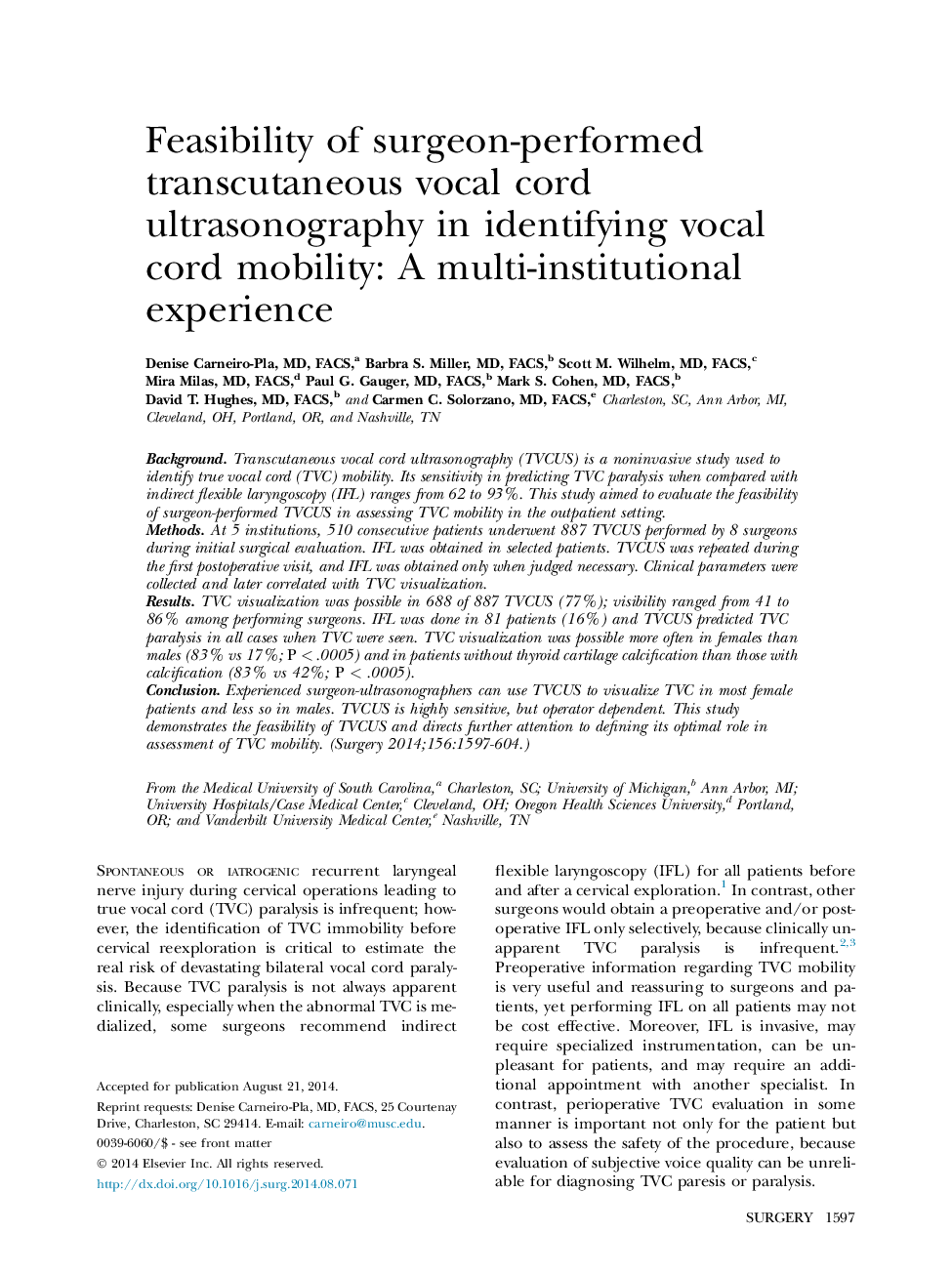| Article ID | Journal | Published Year | Pages | File Type |
|---|---|---|---|---|
| 4307471 | Surgery | 2014 | 8 Pages |
BackgroundTranscutaneous vocal cord ultrasonography (TVCUS) is a noninvasive study used to identify true vocal cord (TVC) mobility. Its sensitivity in predicting TVC paralysis when compared with indirect flexible laryngoscopy (IFL) ranges from 62 to 93%. This study aimed to evaluate the feasibility of surgeon-performed TVCUS in assessing TVC mobility in the outpatient setting.MethodsAt 5 institutions, 510 consecutive patients underwent 887 TVCUS performed by 8 surgeons during initial surgical evaluation. IFL was obtained in selected patients. TVCUS was repeated during the first postoperative visit, and IFL was obtained only when judged necessary. Clinical parameters were collected and later correlated with TVC visualization.ResultsTVC visualization was possible in 688 of 887 TVCUS (77%); visibility ranged from 41 to 86% among performing surgeons. IFL was done in 81 patients (16%) and TVCUS predicted TVC paralysis in all cases when TVC were seen. TVC visualization was possible more often in females than males (83% vs 17%; P < .0005) and in patients without thyroid cartilage calcification than those with calcification (83% vs 42%; P < .0005).ConclusionExperienced surgeon-ultrasonographers can use TVCUS to visualize TVC in most female patients and less so in males. TVCUS is highly sensitive, but operator dependent. This study demonstrates the feasibility of TVCUS and directs further attention to defining its optimal role in assessment of TVC mobility.
